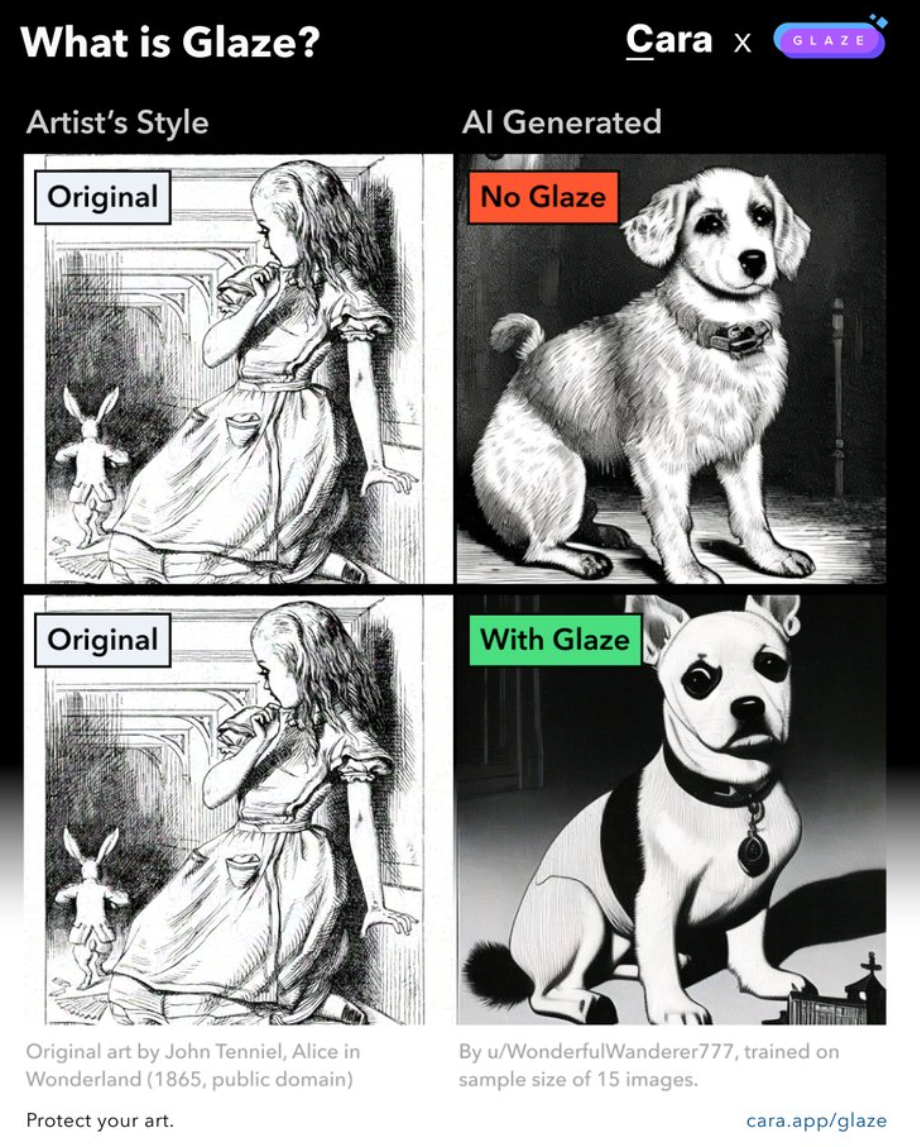In January 2024, Arts Help covered how Cara, an online artist portfolio and social platform, is now at the forefront of the artists’ anti-Artificial Intelligence (AI) movement worldwide. Cara does this by working with Glaze Project, a research project at the University of Chicago’s SAND Lab that provides them with an anti-AI filter for their users to apply to digital images of their works.
The filter fools generative AI into thinking that source images have properties that are different from a person’s eye view, making the digital artwork useless to the AI program. This helps artists counter potential AI plagiarism attacks, ensuring that other people cannot steal their art to generate their own new works and effectively rob artists of employment opportunities.

Now, after Meta’s recent announcement that they will be training their own generative AI systems on content posted on their social media platforms such as Instagram, Facebook, and WhatsApp, artists have flocked to Cara en masse. So much so that their user count has jumped from just 40,000 to over 650,000 in just a few weeks.
This is concrete proof that the creative community sees Cara as a beacon of hope for artists to protect their work against AI plagiarism. Cara makes strides to ensure that artists will not lose their livelihood despite rapid progress in AI development. This is why efforts done by Cara and Glaze are aligned with the United Nations Sustainable Development Goals of Decent Work And Economic Growth and Reduced Inequalities.
Despite its recent popularity, Cara is still very much a growing platform. It was founded by photographer Jingna Zhang in 2022 and has been completely self-funded and run by a group of volunteers since. The sudden jolt of traffic has caused several issues that they are working on fixing soon. Unfortunately, these issues include a temporary shutdown of Glaze that will only resume once the platform’s app security and access issues have been solved.
To fast-track its growth and maintain its independence, the platform has been fundraising on Buy Me a Coffee, where everyone is welcome to support the platform. Founder Zhang has also been very transparent about what Cara uses its funding for, including a USD 96,280 bill on Vercel, a web hosting company they use. The public’s support has been so overwhelming that even Vercel’s Vice President of Product, Lee Robinson, has extended Vercel’s willingness to support Cara and help artists everywhere reclaim ownership of their work online.
At the end of the day, Zhang told TechCrunch that Cara would do everything possible to continue advocating for artists against AI online. “I think there is this clash between backgrounds and expectations on what we put on the internet, for artists, we want to share our work with the world. We put it online, and we don’t charge people to view this piece of work, but it doesn’t mean that we give up our copyright, or any ownership of our work,” said Zhang.
Find out more about Cara by checking their website, or Instagram.
